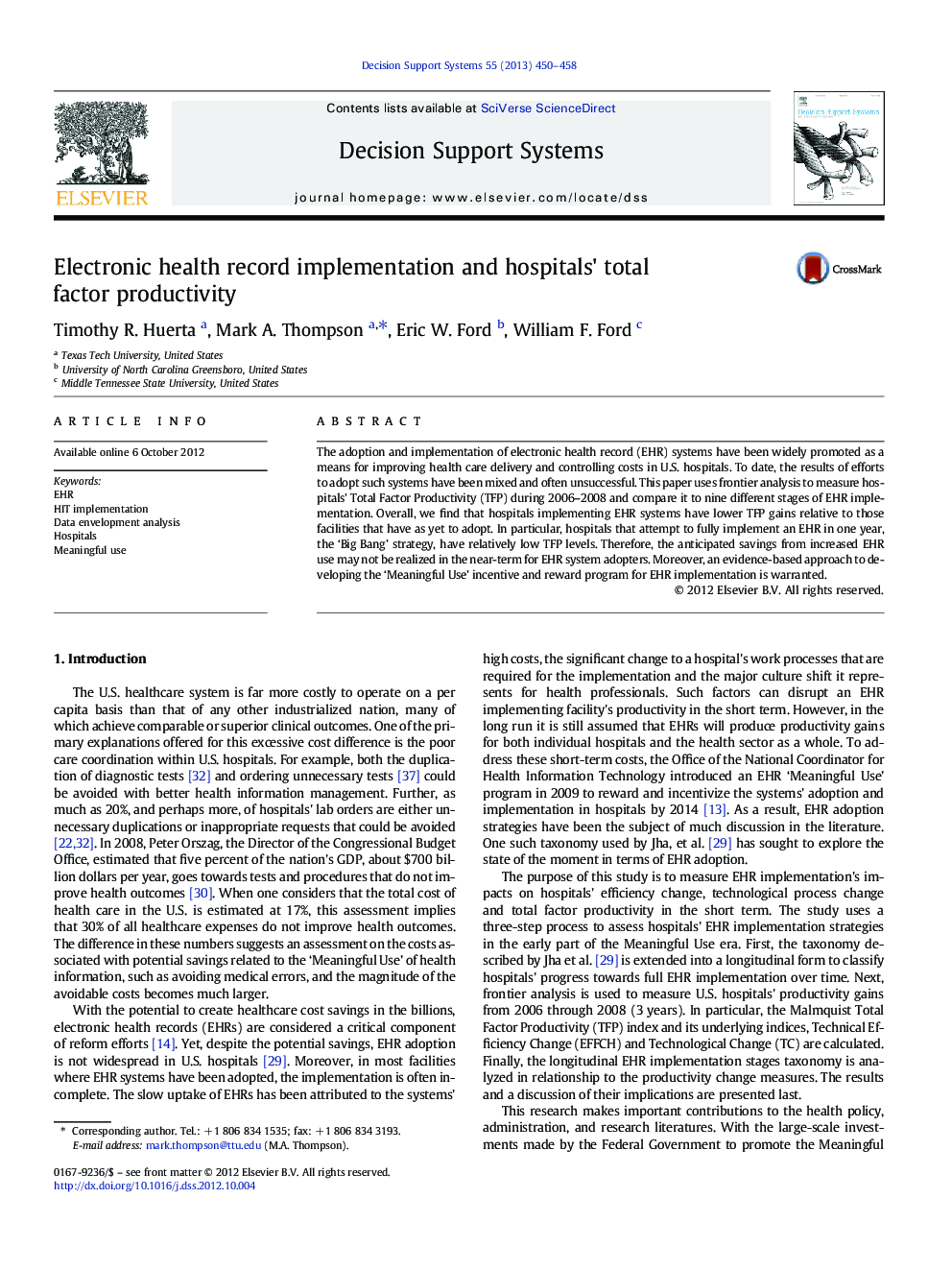| Article ID | Journal | Published Year | Pages | File Type |
|---|---|---|---|---|
| 553527 | Decision Support Systems | 2013 | 9 Pages |
The adoption and implementation of electronic health record (EHR) systems have been widely promoted as a means for improving health care delivery and controlling costs in U.S. hospitals. To date, the results of efforts to adopt such systems have been mixed and often unsuccessful. This paper uses frontier analysis to measure hospitals' Total Factor Productivity (TFP) during 2006–2008 and compare it to nine different stages of EHR implementation. Overall, we find that hospitals implementing EHR systems have lower TFP gains relative to those facilities that have as yet to adopt. In particular, hospitals that attempt to fully implement an EHR in one year, the ‘Big Bang’ strategy, have relatively low TFP levels. Therefore, the anticipated savings from increased EHR use may not be realized in the near-term for EHR system adopters. Moreover, an evidence-based approach to developing the ‘Meaningful Use’ incentive and reward program for EHR implementation is warranted.
► We developed a longitudinal taxonomy of EHR implementation. ► Fully implementing an EHR in one year has a negative impact on productivity. ► The best performing EHR implementation strategy is NOT to adopt at all.
